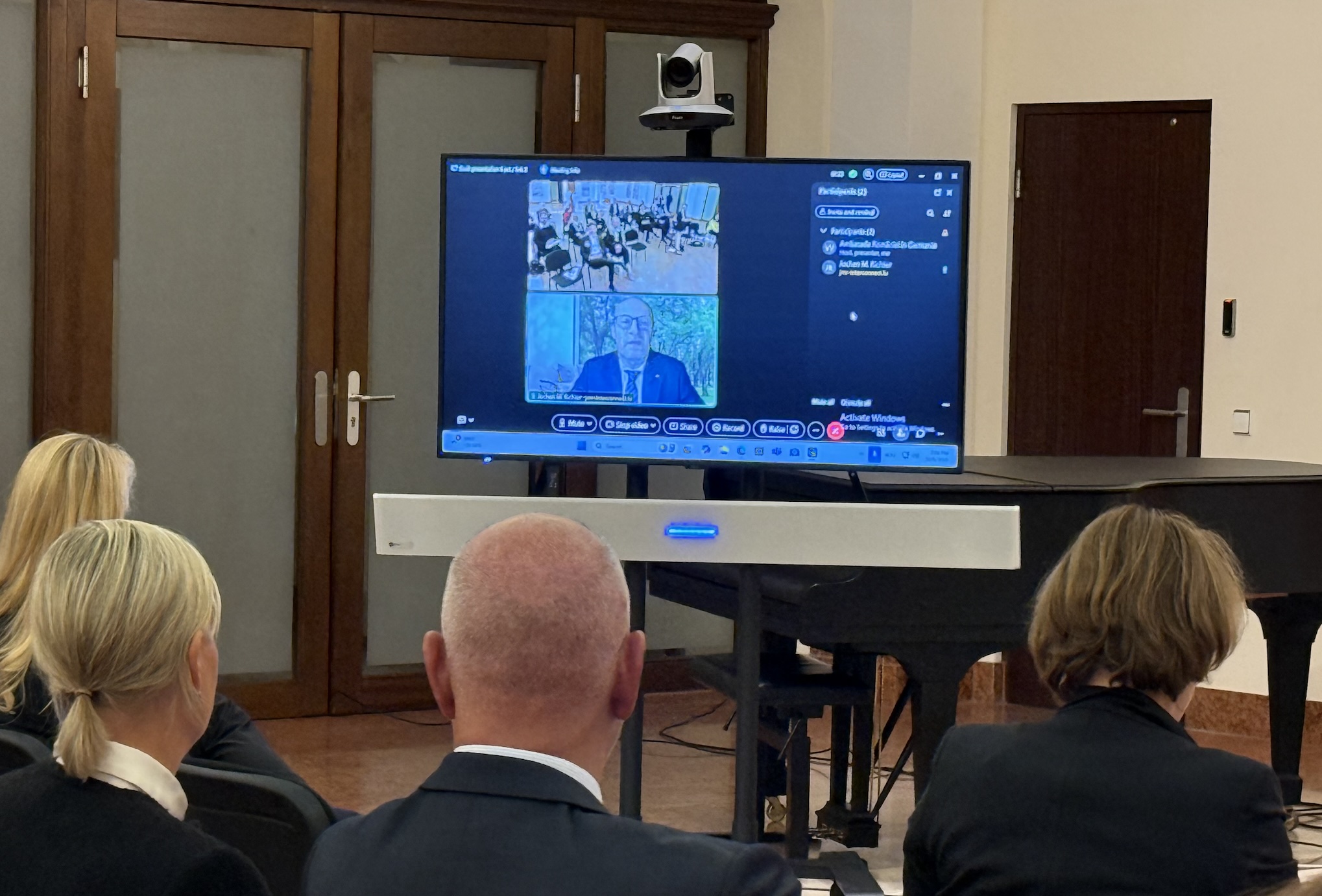Thought Leadership

Speech by Jochen M. Richter, Chairman Diplomatic Council Global Security Forum at the book presentation „Europe and the Emerging New Gobal Order“ on the occasion of the Diplomatic Council Chapter Berlin Opening in September 2025
Excellencies, ladies and gentlemen, thank you for having me in this event.
When we initiated this project in Spring 2024, we very quickly agreed to two principles that all our authors could accept. We defined security in the sense of security at large. That meant besides covering a variety of themes, in many cases we could demonstrate consequences between different security areas.
Secondly, we didn’t want to present the 1001st analysis of what doesn’t work. You can judge whether we made a reasonable number of proposals. Some may sound unrealistic but – as we said in the conclusions of the book – if you don’t like them, please present us with an alternative idea.
We tried to address one more issue with this book. We are all a bit overwhelmed by the challenges the EU is facing. And this feeling of too much can paralyse us. But Angst is a bad advisor. Politicians are under a stack of urgent affairs, and we lose track of a more long-term vision for the European Union. We hang also too much on concepts of the past, but we take decisions affecting the next generation.
Before giving you a rather rough overview of the other chapters, pls allow me a remark on a personal note.
Living in freedom lets us often forget how precious this is. What freedom means I experienced more deeply when in May I was again in Ukraine. Besides my business visits in Lviv and Kyiv, I also took a tour to Bucha, Irpin, Mushun and other villages. The person who drove me around showed me places that I remembered from TV. But it feels very different standing at those places seeing pictures of persons that were killed and / or tortured.
Most lasting, and touching was the story of his cousin who, just two days before my visit, had been released from two years in Russian captivity. The pictures on his phone were shocking. I spear you the details.
The remaining part of the book under 4 headings.
Defence and deterrence allow me to add that we have to implement an effective burden-sharing. An aggressor couldn’t care less which national sign is on a weapon. We need furthermore a joint European command structure that is able to act even in situations involving use cases where here and there national parliaments would have to give consent.
That requires to define these command cases and allow parliaments to discuss and agree upon them well in advance of their application.
Finally, today’s ware fare goes hand in hand with strong innovation being a challenge for our procurement processes. So, pls let’s be as pragmatic as possible and necessary.
In civil defence, trends are moving in the right direction, copying as much as possible from our Nordic friends. But the mindset of our people needs more active work.
And yes, we baby boomers cannot expect that generation Z simply accepts the changes that are necessary by us saying, sorry guys we had a great last 30 years but now it is different.
That civil defence also means drone production and teaching handling those is self-evident following the recent events. I may add that training school children, as useful I personally find such initiatives, cannot avoid having the necessary ethical debates. Killing a person is not a computer game. Outsourcing of the responsibility is against our humanitarian principles. Of course, on the battlefield the situation does not allow for such luxuries. Here it is me or the other. For all these reasons we have an ethics professor in the book giving his input to this debate.
Prof. Bargaoanu spoke about the need for digital soverignty.
Therefore, it wouldn’t come as a surprise that we address cyber security. In a nutshell, we need more efforts both in public service and SMEs. Secondly, no more labelling of cyber-attacks as state secrets. This only helps the attacker.
Secure supply chains are another area where the authors, reporting from their own experience how to act, basically to prepare alternatives. In this context we need further efforts to secure our critical infrastructure. The recently uncovered story of chasing the Russian spy ship Yantar is yet another wake-up call for more collaborative action.
I conclude by mentioning that the book also addresses climate change with two very different authors contributing.
We conclude the book with a call for action. We know quite well what is at stake, therefore no further discussions, just let’s do it.
Thank you for your kind attention.
